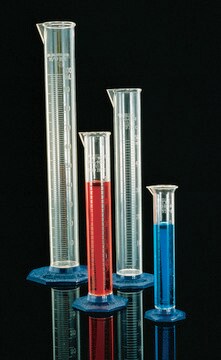All Photos(4)
About This Item
Linear Formula:
Na2MoO4
CAS Number:
Molecular Weight:
205.92
EC Number:
MDL number:
UNSPSC Code:
12352302
PubChem Substance ID:
NACRES:
NA.55
form:
granular
Recommended Products
Quality Level
Assay
≥98%
form
granular
reaction suitability
reagent type: catalyst
core: molybdenum
mp
687 °C (lit.)
density
3.78 g/mL at 25 °C (lit.)
SMILES string
[Na+].[Na+].[O-][Mo]([O-])(=O)=O
InChI
1S/Mo.2Na.4O/q;2*+1;;;2*-1
InChI key
TVXXNOYZHKPKGW-UHFFFAOYSA-N
Looking for similar products? Visit Product Comparison Guide
General description
Sodium molybdate has corrosion resistant properties. On heating, it undergoes degradation and releases Na2O fumes.
Application
Sodium molybdate (Na2MO4) may be used as an electrolyte additive, for use in electrochemical capacitors. Addition of Na2MO4 as an electrolyte additive may result in enhanced capacitance, corrosion prevention and stabilized performance.
It may also be used as a catalyst during the manufacture of paints and dyes.
It may also be used as a catalyst during the manufacture of paints and dyes.
Storage Class Code
13 - Non Combustible Solids
WGK
WGK 1
Flash Point(F)
Not applicable
Flash Point(C)
Not applicable
Choose from one of the most recent versions:
Already Own This Product?
Find documentation for the products that you have recently purchased in the Document Library.
Customers Also Viewed
Q Abbas et al.
Faraday discussions, 172, 199-214 (2014-11-27)
Sodium molybdate (Na2MoO4) has been used as an additive to 1 mol L(-1) lithium sulfate electrolyte for electrochemical capacitors based on activated carbon (AC) electrodes, in order to reduce the corrosion of stainless steel current collectors. We demonstrate that the
Jason Davenport et al.
Journal of natural products, 74(5), 1085-1092 (2011-04-14)
A high-throughput screening of natural product libraries identified (-)-gambogic acid (1), a component of the exudate of Garcinia harburyi, as a potential Hsp90 inhibitor, in addition to the known Hsp90 inhibitor celastrol (2). Subsequent testing established that 1 inhibited cell
Ash M and Ash I.
Handbook of Green Chemicals, 878-878 (2004)
Vaddypally Shivaiah et al.
Inorganic chemistry, 44(24), 8846-8854 (2005-11-22)
Two Anderson-type heteropolyanion-supported copper phenanthroline complexes, [Al(OH)6Mo6O18[Cu(phen)(H2O)2]2]1+ (1c) and [Al(OH)6Mo6O18[Cu(phen)(H2O)Cl]2]1- (1a) complement their charges in one of the title compounds [Al(OH)6Mo6O18[Cu(phen)(H2O)2]2][Al(OH)6Mo6O18[Cu(phen)(H2O)Cl]2].5H2O [1c][1a].5 H2O 1. Similar charge complementarity exists in the chromium analogue, [Cr(OH)6Mo6O18[Cu(phen)(H2O)2]2][Cr(OH)6Mo6O18[Cu(phen)(H2O)Cl]2].5 H2O [2c][2a].5 H2O 2. The chloride coordination
Bo-Geon Yun et al.
Biochemistry, 43(25), 8217-8229 (2004-06-24)
Hsp90 functions to facilitate the folding of newly synthesized and denatured proteins. Hsp90 function is modulated through its interactions with cochaperones and the binding and hydrolysis of ATP. Recently, novobiocin has been shown to bind to a second nucleotide binding
Our team of scientists has experience in all areas of research including Life Science, Material Science, Chemical Synthesis, Chromatography, Analytical and many others.
Contact Technical Service










